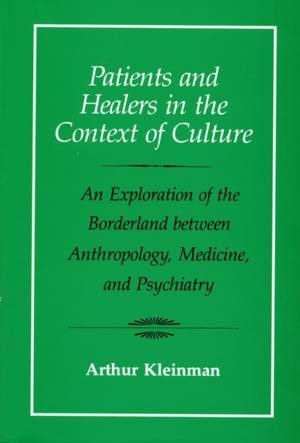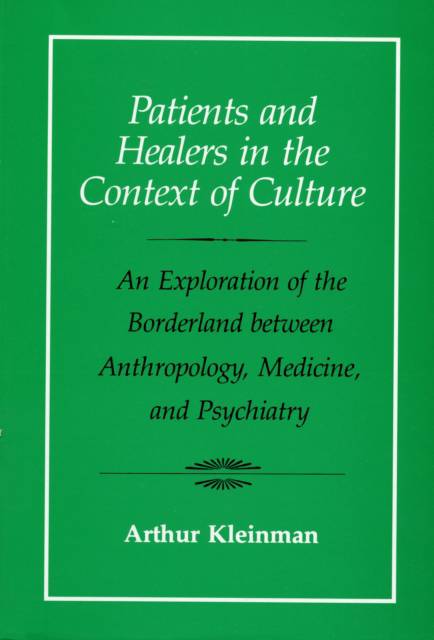
- Afhalen na 1 uur in een winkel met voorraad
- Gratis thuislevering in België vanaf € 30
- Ruim aanbod met 7 miljoen producten
- Afhalen na 1 uur in een winkel met voorraad
- Gratis thuislevering in België vanaf € 30
- Ruim aanbod met 7 miljoen producten
Zoeken
Patients and Healers in the Context of Culture
An Exploration of the Borderland Between Anthropology, Medicine, and Psychiatry Volume 5
Arthur Kleinman
€ 45,45
+ 90 punten
Omschrijving
From the Preface, by Arthur Kleinman: Patients and Healers in the Context of Culture presents a theoretical framework for studying the relationship between medicine, psychiatry, and culture. That framework is principally illustrated by materials gathered in field research in Taiwan and, to a lesser extent, from materials gathered in similar research in Boston. The reader will find this book contains a dialectical tension between two reciprocally related orientations: it is both a cross-cultural (largely anthropological) perspective on the essential components of clinical care and a clinical perspective on anthropological studies of medicine and psychiatry. That dialectic is embodied in my own academic training and professional life, so that this book is a personal statement. I am a psychiatrist trained in anthropology. I have worked in library, field, and clinic on problems concerning medicine and psychiatry in Chinese culture. I teach cross-cultural psychiatry and medical anthropology, but I also practice and teach consultation psychiatry and take a clinical approach to my major cross-cultural teaching and research involvements. The theoretical framework elaborated in this book has been applied to all of those areas; in turn, they are used to illustrate the theory. Both the theory and its application embody the same dialectic. The purpose of this book is to advance both poles of that dialectic: to demonstrate the critical role of social science (especially anthropology and cross-cultural studies) in clinical medicine and psychiatry and to encourage study of clinical problems by anthropologists and other investigators involved in cross-cultural research.
Specificaties
Betrokkenen
- Auteur(s):
- Uitgeverij:
Inhoud
- Aantal bladzijden:
- 448
- Taal:
- Engels
- Reeks:
- Reeksnummer:
- nr. 5
Eigenschappen
- Productcode (EAN):
- 9780520045118
- Verschijningsdatum:
- 17/08/1981
- Uitvoering:
- Paperback
- Formaat:
- Trade paperback (VS)
- Afmetingen:
- 149 mm x 227 mm
- Gewicht:
- 594 g

Alleen bij Standaard Boekhandel
+ 90 punten op je klantenkaart van Standaard Boekhandel
Beoordelingen
We publiceren alleen reviews die voldoen aan de voorwaarden voor reviews. Bekijk onze voorwaarden voor reviews.











